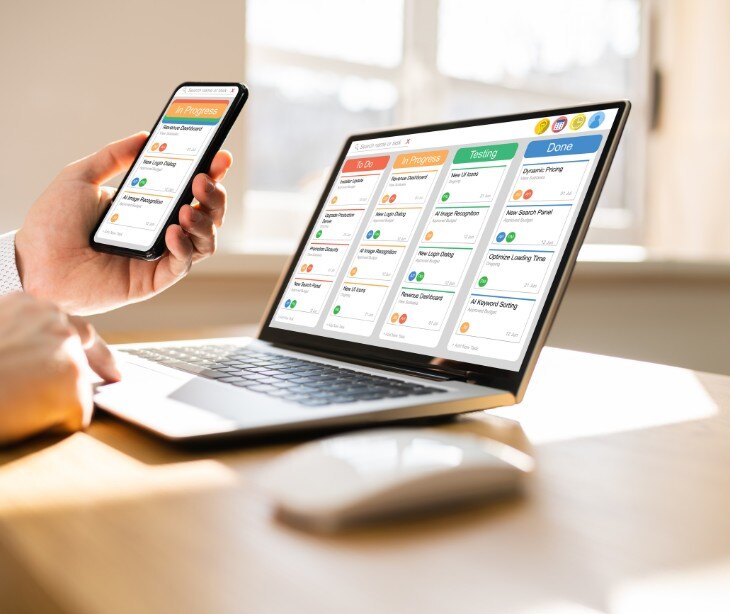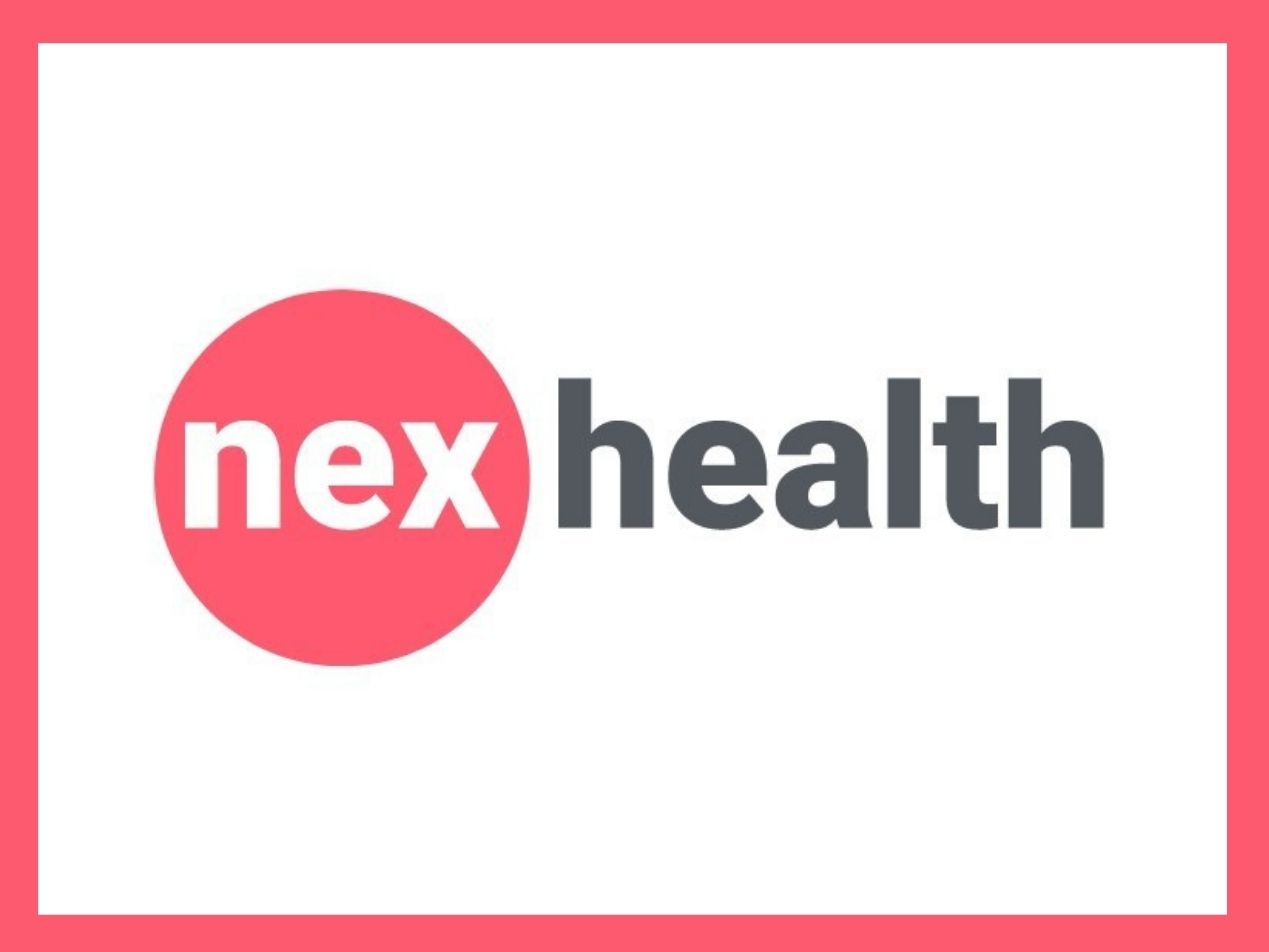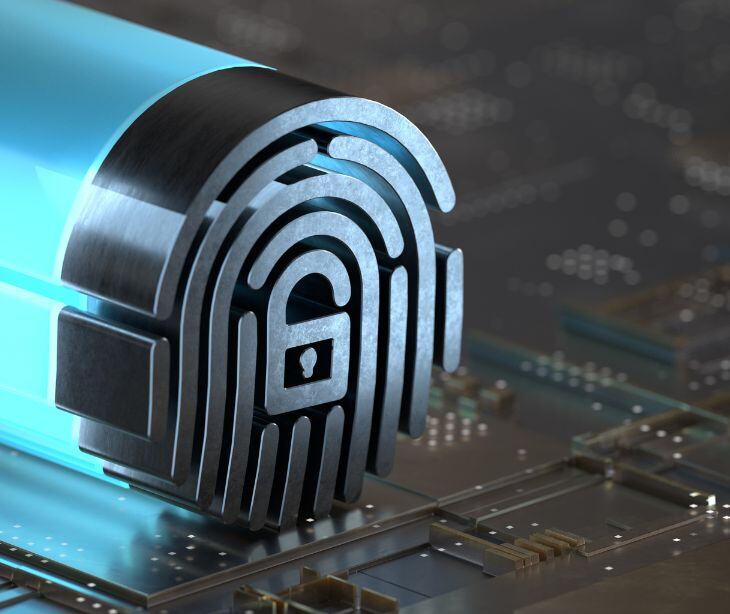
Scheduling software often handles PHI, from patient names and contact information to medical histories and appointment details. Failing to secure this data can lead to major consequences, including breaches, fines, and reputational damage.
HIPAA compliant scheduling software addresses these concerns by implementing security measures and adhering to strict regulatory guidelines. The right platform will ensure that patient information is collected, processed, stored, and disposed of in a manner that safeguards against unauthorized access, potential breaches, and the resulting legal and financial repercussions.
Features of HIPAA compliant scheduling software
When selecting a HIPAA compliant scheduling solution, healthcare providers should look for the following features:
Encryption and data protection
At the heart of HIPAA compliance is the requirement to protect PHI from unauthorized access. HIPAA compliant scheduling software must employ advanced encryption protocols to secure sensitive data during transmission and storage.
Role-based access control
HIPAA compliant scheduling platforms should offer granular, role-based access controls, allowing healthcare organizations to grant specific permissions to different user groups based on their job responsibilities.
Audit trails and logging
HIPAA regulations mandate the maintenance of detailed audit trails and logs to track all access, modifications, and deletions of PHI. HIPAA compliant scheduling software must provide logging capabilities to facilitate compliance monitoring and incident investigation.
Secure communication channels
HIPAA compliant scheduling solutions should enable secure communication channels for patient-provider interactions, such as secure messaging, video conferencing, and the exchange of electronic documents.
Automated backups and disaster recovery
HIPAA compliant scheduling software should offer data backup and disaster recovery capabilities to safeguard against data loss and ensure business continuity if there is a system failure issue.
Self-service features
HIPAA compliant scheduling software should empower patients with self-service features, such as online appointment booking, appointment reminders, and access to their medical records through a secure patient portal.
Ongoing compliance monitoring and updates
HIPAA regulations are subject to periodic updates and changes. HIPAA compliant scheduling software providers should commit to regularly monitoring regulatory changes and promptly updating their platforms to ensure continued compliance.
Top HIPAA compliant scheduling solutions
Several HIPAA compliant scheduling solutions have emerged as industry leaders. Let's look at some of the most prominent options:
NexHealth
NexHealth is a patient experience platform designed specifically for covered entities. It includes a business associate agreement (BAA) during registration helps organizations safeguard PHI. NexHealth's features include secure communication, consolidated patient data management, and seamless integration with electronic health records (EHR) systems.
CareCloud
CareCloud is a cloud-based scheduling software that offers appointment scheduling features while streamlining clinical and healthcare workflows. The platform provides numerous security measures and will sign a BAA.
CentralReach
CentralReach is an online scheduling software tailored for applied behavior analysis (ABA) therapy providers. The platform meets HIPAA security standards and includes a BAA, offering features such as seamless patient intake, scheduling, billing, and claims management, alongside mobile data collection for secure documentation management.
Acuity Scheduling
Acuity Scheduling is a popular online appointment scheduling software offering HIPAA compliant features to protect PHI. The platform simplifies the appointment scheduling process while enabling healthcare practitioners to store and process patient health information within the regulatory confines of HIPAA.
Phreesia
Phreesia is a practice management platform that helps healthcare organizations deliver a consistent patient experience. The platform strengthens pre-appointment workflows, facilitates claims management, and engages patients efficiently, all while adhering to HIPAA compliance standards.
SimplePractice
SimplePractice is an EHR and practice management platform that allows for appointment booking, treatment plan management, claim filing, client communication, payment, and patient record-keeping, all while aligning its functions with HIPAA compliance.
Go deeper: Best HIPAA compliant appointment scheduling software (and which to avoid)
Selecting the right HIPAA compliant scheduling software
When it comes to choosing the right scheduling software for your healthcare organization, there are several factors to consider:
Business associate agreement (BAA)
Ensure that the software provider is willing to sign a BAA, a legally binding agreement outlining the responsibilities and obligations of both parties in protecting PHI.
Encryption and security protocols
Verify that the platform employs encryption methods to safeguard data during transmission and storage.
Customizable privacy and security settings
Look for a scheduling solution that can customize privacy and security settings, allowing you to tailor the platform to your organization's specific needs and patient preferences.
Compliance monitoring and updates
Assess the software provider's commitment to regular compliance monitoring and prompt updates to address changes in HIPAA guidelines and emerging security threats.
Integration with EHR and other systems
Evaluate the scheduling software's ability to integrate seamlessly with your existing electronic health records (EHR) system and other healthcare technology platforms for a streamlined and efficient workflow.
User-friendly interface and automation
Consider the scheduling software's user-friendliness, intuitive design, and level of automation to enhance the overall experience for healthcare staff and patients.
The benefits of adopting HIPAA compliant scheduling software
Implementing HIPAA compliant scheduling software can create numerous benefits for healthcare organizations, ultimately leading to improved patient care, enhanced operational efficiency, and stronger compliance with regulatory standards.
Enhanced data security and privacy
HIPAA compliant scheduling software prioritizes protecting sensitive patient information, mitigating the risk of data breaches and unauthorized access, safeguarding your organization's reputation, and improving patient trust.
Streamlined scheduling and workflow optimization
These platforms automate and streamline the scheduling process, eliminating common issues like double bookings and no-shows. This enhances productivity, optimizes resource utilization, and ensures that healthcare providers can focus on delivering quality care.
Improved patient engagement and satisfaction
HIPAA compliant scheduling solutions often include self-service features, such as online appointment booking and access to medical records, empowering patients and improving their overall experience with your healthcare organization.
Compliance assurance and reduced legal risks
Adopting HIPAA compliant scheduling software can allow healthcare providers to know they are operating within the regulatory guidelines of HIPAA, mitigating the risk of costly fines, legal proceedings, and reputational damage associated with non-compliance.
Enhanced operational efficiency
HIPAA compliant scheduling platforms often integrate with other healthcare technology systems, such as EHRs and billing software, enabling seamless data exchange and streamlining administrative tasks, translating to improved operational efficiency and reduced administrative burdens for healthcare staff.
Read also: HIPAA Compliant solutions for Healthcare Marketing
In the news
According to Dimension Market Research, the global healthcare compliance software market is projected to witness growth in the coming years, with the market size expected to reach $10.3 billion by 2033 growing at a compound annual growth rate of 12.0% from 2024 to 2033. The surge in market size can be attributed to the increasing regulatory complexity faced by healthcare entities, the rising concerns over data security and patient privacy, and the growing adoption of digital health technologies, such as telemedicine and electronic health records (EHRs).
FAQs
Are all scheduling software HIPAA compliant?
No, not all scheduling software is HIPAA compliant. Healthcare providers must carefully evaluate the security features and compliance certifications of any scheduling platform they consider, as only those that meet the strict requirements of HIPAA can be deemed HIPAA compliant.
What makes a system HIPAA compliant?
To be HIPAA compliant, healthcare systems and software must have security measures, including encryption protocols, access controls, audit trails, and secure communication channels. They must also adhere to the privacy and security rules set forth by the Health Insurance Portability and Accountability Act (HIPAA).
Why do healthcare providers need to be HIPAA compliant?
Healthcare providers in the United States must be HIPAA compliant because it is a federal regulation enforced by the government. Failure to comply with HIPAA can result in hefty fines, legal consequences, and significant reputational damage to healthcare organizations.
Learn more: HIPAA Compliant Email: The Definitive Guide
Subscribe to Paubox Weekly
Every Friday we'll bring you the most important news from Paubox. Our aim is to make you smarter, faster.



